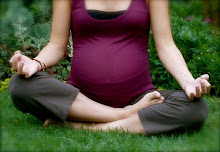
a healthy diet is essential for a healthy baby. proper nutrition assists with developing a strong fetus and placenta, eases birth while strengthening the body, nourishes the postpartum period and assists with milk production and antibodies.
while a woman is pregnant her blood volume doubles. she is in complete flux and change. having a sound prenatal diet will help her to avoid premature birth, anemia, hypertension, preeclampsia and other roadblocks women come to in their pregnancies. to delve further into this topic, dr. mercola discusses the effects of poor nutrition in the womb.
and from here a question arises, what is a healthy diet?
i was recently on a conference call where a mentor of mine said that all pregnant women should become ingredient detectives. i totally agree with this. . .in fact, i would take this further and say all consumers should become ingredient detectives. and pregnancy is an amazingly fertile time to begin this practice.
what our human bodies need are whole nutrient dense foods. this means eating minimally processed ingredients. which means reading your labels and looking for items where there are very few ingredients and you can pronounce all of them. buying local and organic foods is important. that's a whole other topic, and well worth the research if you aren't informed.
every childbearing woman should consume the following:
--water-- lots and lots of water. fresh water, ideally from a filter versus a plastic bottle. drink at least 64 oz of water each day to flush out waste.
--protein-- you need at least 4-6 servings each day. davi kaur khalsa, an amazing angelino midwife often reminds women that everything they eat has a little protein in it. so snacking often is quite helpful. excellent sources of protein include dairy, eggs, nuts, fermented soy, beans, brewer's yeast and fish. and if you eat other forms of meat, chicken is great because it's lean and easily digested compared to red meats.
--whole grains-- a couple of servings of grains like oats, brown rice, white basmati rice, millet, quoina, whole wheat or rye help complete a well rounded diet.
--dark leafy greens-- go to your local gardens and farms for these nutrient rich veggies. dig into arugala, spinach, kale, collards, chards, bok choy, mixed lettuces, dandelion and nettles.
--sea veggies-- sea veggies are an amazing way to get much needed minerals and trace elements like iron, calcium, magnesium, potassium, and iodine. they also provide high quality protein, vitamins, and fiber. in the japanese section of your local health food store you will find these bagged up. go for a variety like arame, wakame, kombu, nori and dulse. another great source for iron is black strap molasses.
--fresh veggies-- color, color, color. eat a variety of veggies and look for the rainbow so that you know you are getting a good balance. it's so important that your fresh veggies are local and organic for the best impact to your body and your community.
--fruits-- color also applies here. eat lots of fruit, however make sure you are getting a good balance of other foods.
--healthy fats-- this is an area you want to make sure you are consuming the right kinds of fats and at least the minimum amounts. healthy fats are extremely essential for brain development. during the last trimester of pregnancy, your baby's brain grows an estimated 200%. unrefined olive oil, fresh avocado, raw coconut oil, raw coconut butter and fish are great places to start.
--salt-- a high quality salt is also needed in a balanced diet. the best salts are those that you can actually see the minerals in. . .celtic sea salt or pink himalayan salt are examples. salt your food to taste, trusting the wisdom of your palette.

No comments:
Post a Comment